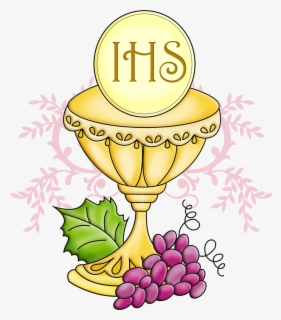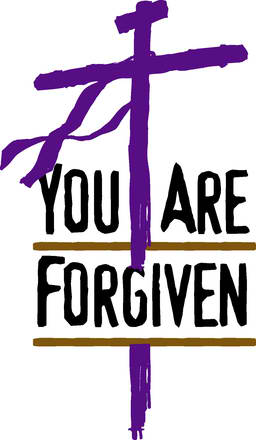“The purpose of the sacraments is to sanctify people, to build up the body of Christ, and, finally, to worship God. Because they are signs they also belong in the realm of instruction. They not only presuppose faith, but by words and objects, they also nourish, strengthen, and express it. That is why they are called sacraments of faith. They do, indeed, confer grace, but, in addition, the very act of celebrating them is most effective in making people ready to receive this grace to their profit, to worship God duly, and to practice charity.” (Vatican II, Sacrosanctum Concilium 59) The sacraments of the Church sanctify the faithful, in their everyday lives, and in the most sacred moments of their lives. We invite you to share in the grace extended to you through the sacramental life of our Church.
 Baptism:
Baptism:
“Holy Baptism is the basis of the whole Christian life, the gateway to life in the Spirit, and the door which gives access to the other sacraments. Through Baptism we are freed from sin and reborn as sons of God; we become members of Christ, are incorporated into the Church and made sharers in her mission.” (Catechism of the Catholic Church #1213)
As we welcome your child into our community of faith, we celebrate this sacrament with you joyfully. Please contact the parish office to schedule a meeting with the parish priest and to schedule a Baptism.
 Marriage:
Marriage:
“The matrimonial covenant, by which a man and a woman establish between themselves a partnership of the whole of life and which is ordered by its nature to the good of the spouses and the procreation and education of offspring has been raised by Christ the Lord to the dignity of a sacrament between the baptized.” (Code of Canon Law #1055)
We believe deeply in the sanctity of the sacrament of matrimony, and we joyfully celebrate with you on your wedding day. We ask that you give at least six month’s notice before setting your wedding date. All couples will meet with the parish priest, and complete a marriage preparation program. For more specific questions regarding the ceremony and preparatory details, we recommend you contact the Parish Office.
Confession:
Reconciliation, penance, or confession, is the sacrament in which a person examines their conscience, confesses their sins, and is forgiven in the name of Christ. The Sacrament of Reconciliation is available on Saturday from 3:30 – 4:15 pm.
 Anointing of the Sick:
Anointing of the Sick:
In the Catholic Church, Extreme Unction or the Last Rites is the anointing at the time of death. Since the Second Vatican Council, this sacrament is now called the Anointing of the Sick and has been broadened to offer healing and comfort in times of illness that may not lead to immediate death. Speaking about a wider implementation of this sacrament, Pope Paul VI advocated for “a wider availability of the sacrament and to extend it—within reasonable limits—even beyond cases of mortal illness.”
The Anointing of the Sick is for those approaching death, the elderly, infirm, those critically or chronically ill, and those about to undergo surgery or serious medical procedures. Please call the parish office for this sacrament.
 Eucharist:
Eucharist:
The liturgical life of the Church revolves around the sacraments, with the Eucharist at the center (National Directory for Catechesis. #35). At Mass, we are fed by the Word and nourished by the Body and Blood of Christ. The Eucharist is not a sign or symbol of Jesus; rather we believe that the Risen Jesus is truly and substantially present in the Eucharist. The priest, through the power of his ordination and the action of the Holy Spirit, transforms the bread and wine into the Body and Blood of Jesus.
 Confirmation:
Confirmation:
At confirmation we receive the gifts of the Holy Spirit, confirm our baptismal promises, and commit to living a life of maturity in the Christian faith. Greater awareness of the grace of the Holy Spirit is conferred through the anointing of chrism oil and the laying on of hands by the Bishop. In the Sacrament of Confirmation, the baptized person is “sealed with the gift of the Holy Spirit” and is strengthened for service to the Body of Christ.
 Holy Orders:
Holy Orders:
“Holy Orders is the sacrament through which the mission entrusted by Christ to his apostles continues to be exercised in the Church until the end of time…It includes three degrees of order: episcopate, presbyterate, and diaconate” (CCC 1536). Deacons, priest and bishops are essential to the Catholic Church because we believe that they continue the work begun by the apostles. Ordination is the rite at which the Sacrament of Holy Orders is bestowed. The bishop confers the Sacrament of Holy Orders by the laying on of hands which confers on a man the grace and spiritual power to celebrate the Church’s sacraments.

